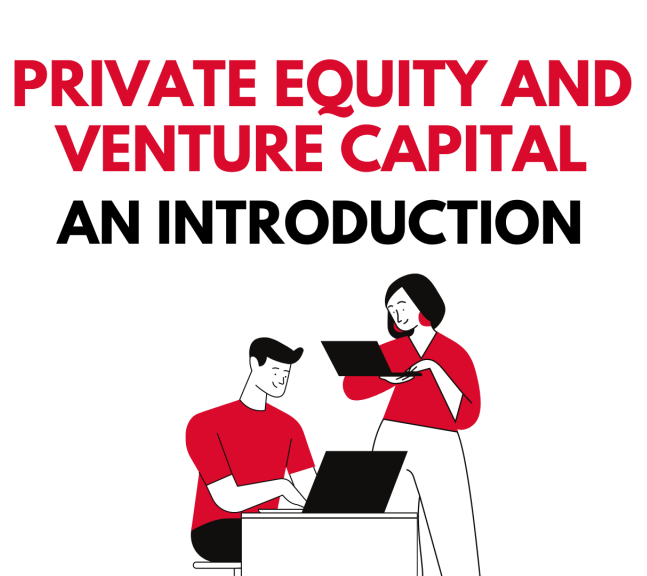Looking to learn how to sell tech services to foreign clients from Nepal? Get half a decade of experience in a day. Check out the book!
Most solopreneurs and small business owners finance their businesses through friends and family or take a loan from the bank to get something set up in order to bootstrap. These businesses usually take the form of a small convenience store, a neighborhood restaurant, or anything similar that is not geared primarily towards scaling to more than one location.

However, when an entrepreneur starts thinking about setting up a high-risk capital-intensive company with growth in mind, they prefer looking towards the Private Equity and Venture Capital space to raise funding for their idea or growth. The reason is simple—Private Equity and Venture Capital investors understand the vision of the entrepreneur and they are able to not only provide financial support but strategic and administrative support as well.
If you’re an entrepreneur who has their focus set on going big or going home, this article will help you understand the ABCs of Private Equity and Venture Capital in detail.
What Is Private Equity And Venture Capital?
Private Equity and Venture Capital are simply alternative sources of financing for a company just as an IPO, bonds issuance, or getting a loan from the bank.
More specifically, Private Equity (PE) is an equity investment made by a financial institution, called a Private Equity Investor (PEI), in a company that is not listed on the stock exchange. Venture Capital is a specific case of Private Equity where the Private Equity Investor invests in a company that is in its early stages of life or what we commonly know as a ‘startup’.

A company that is financed by such type of investments from a PEI is known as a venture-backed company. Such companies issue new shares that are bought by the Private Equity Investor and in return, the Private Equity Investor provides cash to the company. This is how Private Equity and Venture Capital works as a source of financing.
Although the cash for equity transaction looks simple on the outset, there are certain consequences an entrepreneur should know before accepting such kind of financing:
- Once the investment deal is complete, the Private Equity Investor not only becomes a financer (like a bank giving out a loan) but also becomes an actual shareholder of the company. The PEI can thus advise on the governance and management of the company moving forward.
- Private Equity and Venture Capital financing is a marriage with an end since the Private Equity Investor earns their renumeration through capital gain. This means they will sell their shares on a future point in time to get remuneration for their investments. This is also known as taking an ‘exit’ from the company by the Private Equity Investor.
This definition and outlining of consequences should help you firmly grasp what is Private Equity and Venture Capital. But, how does Private Equity differ from Public Equity? Let’s look at their differences from the eyes of an investor.
Differences Between Private Equity And Public Equity
Now that you know what Private Equity is, let’s dive deeper and understand the differences between Private Equity and Public Equity:
| Private Equity | Public Equity |
| Investments are not highly liquid since an investor needs to find and sell shares to another Private Equity Investor. | Investments are highly liquid since an investor can sell shares with a simple ‘sell’ order on the stock exchange. |
| Pricing of the company shares is negotiated by the Private Equity Investors trying to buy/sell the shares. | The pricing of the company shares is driven by the market. |
| The Private Equity Investor has to regulate and monitor the company to see how value is generated from the made investments. | Companies are regulated and monitored by the stock exchange and not the investors. |
These are the three major differences between Private Equity and Public Equity from the eyes of an investor.
Why Does A Company Take Private Equity And Venture Capital Financing?

As described in the opening paragraphs of this article, Private Equity and Venture Capital are preferred by entrepreneurs who are willing to work on high-risk capital-intensive businesses. Here are some other reasons to justify why does a company take Private Equity and Venture Capital financing:
- Having a Private Equity Investor invest in a company certifies that the company is worth investing in. This increases the profile of the company in and outside of its primary market.
- The Private Equity Investor provides access to valuable connections for the company leaders to network with. This increases the chance of the company to sell to more customers and perform larger deals enabling rapid growth.
- The knowledge of the Private Equity Investor allows the company to employ proven strategies and tactics for ensuring the success of the company.
- The company receives higher credit rating due to the profile of the Private Equity Investor and can start leveraging debt for growth.
Furthermore, a company takes Private Equity and Venture Capital financing in the following stages to perform the given activities:
- Development stage: To perform Research and Development (R&D) activity
- Startup stage: To buy fixed assets and generate working capital
- Early Growth stage: To support the growth of sales
- Expansion stage: To buy new fixed assets and generate working capital
- Mature stage: To acquire new businesses and for transforming the business
- Decline stage: To exit from a company crisis
These are all of the reasons why a company takes Private Equity and Venture Capital financing from an investor.
Which Financial Investor Invests At Which Stage Of A Company?
Based on the stage of the company, there are different financial investors in the market:
- Development stage: Family and Friends, Founder, Business Angels and Venture Capital
- Startup stage: Family and Friends, Venture Capital and Business Angels
- Early Growth stage: Venture Capital and Bank
- Expansion stage: Bank, Trade Credit and Private Equity
- Mature stage: Stock Exchange, IPO, Private Equity and Bank
- Decline stage: Family and Friends, Founder, Private Equity
Remembering which financial investor invests at which stage of the company is important since it allows the entrepreneur to focus their fundraising efforts in the right direction.
In Conclusion
So, that’s it! Now you have been introduced to the world of Private Equity and Venture Capital. You can move on to deeper topics like different financing techniques in Private Equity and Venture Capital as a step up from this article.
If you have any questions, please make sure to comment them down and we’ll try our best to answer them.

